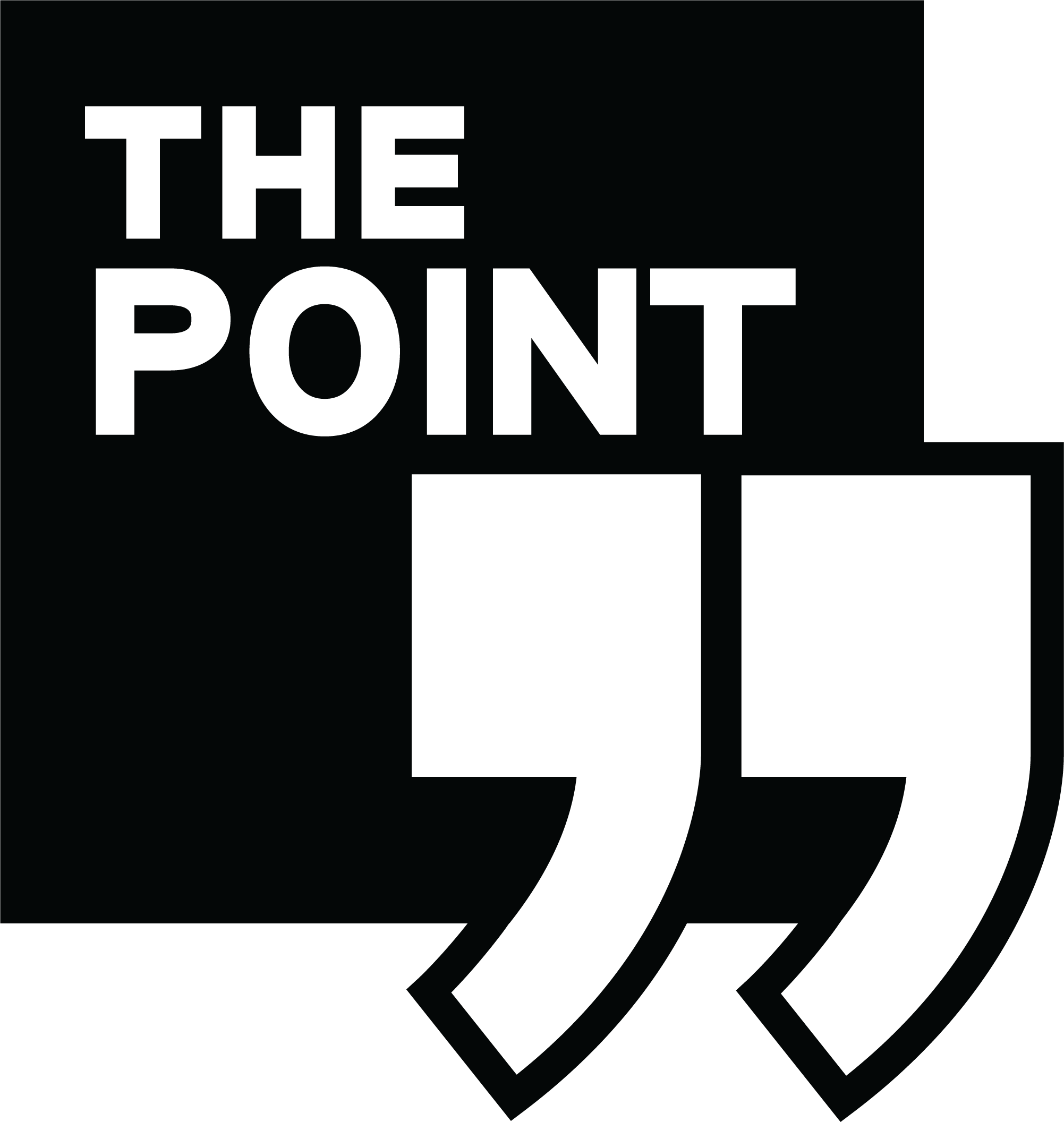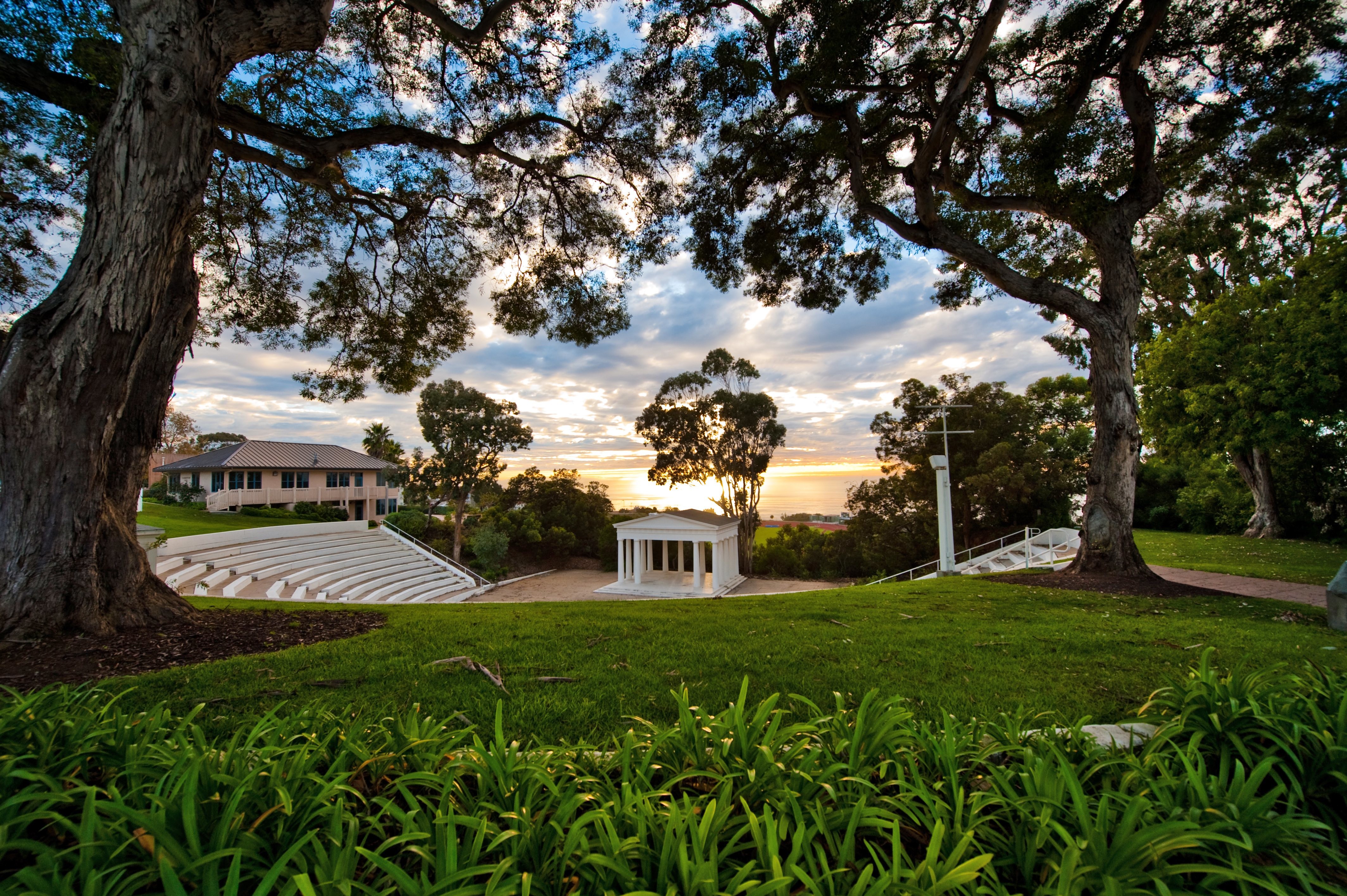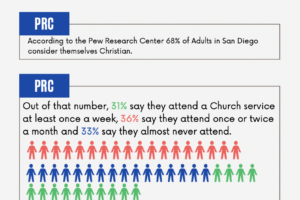By Michael J. Christensen, a member of the Selection Committee for The Blunt Scholarship. “AS I SEE IT” was Christensen’s weekly opinion column when he was Editor of The Point (1975-1976).
Editor’s Note: Grammatical and AP Style changes were made to this article for the online version that were not included in the print edition.
“Speaking Truth to Power” is the theme of this special PLNU Homecoming edition of The Point-Blunt underground newspaper.
The specific phrase “speak truth to power” is credited to Bayard Rustin, the Black-Gay- Quaker Civil Rights leader who stated in 1948 that “the primary social function of a religious society is to ‘speak the truth to power.’” What he meant at the time was that it was the duty of the religious community to speak God’s truth to the power of the Church and to the power of the state in matters of peace and justice, especially concerning civil rights. Rustin spoke truth in hard times and joined Martin Luther King Jr. and other religious leaders in insisting that war, violence, racism, domination, discrimination, economic oppression, etc. are simply wrong and must be countered by people of faith with holy boldness — nonviolent, active resistance and protest regardless of personal risk, cost and consequences of faithful action.
“The moment we begin to fear the opinions of others and hesitate to tell the truth that is in us,” wrote early feminist Elizabeth Cady Stanton, “the divine floods of light and life no longer flow into our souls.” Speaking truth to power as a moral and spiritual imperative ignited American Civil Rights, Women’s Suffrage and Anti-War movements in the 1950s and ‘60s.
“Silence in the face of injustice is complicity with the oppressor,” our Civil Rights leaders tried to teach us by their words and actions. Following their example, even in small ways, we speak truth to power even when our voice shakes and our knees tremble in fear of the risk we are taking. Breaking the silence is a high calling, requires prophetic courage (or craziness) and probably is not good for everyone to practice (for the sake of mental health) yet needs to be practiced by some in the community of faith.
Speaking truth to power is easier for some and harder for others. Easier perhaps for contrary people like me who are impulsive, quick to blurt and don’t mind so much if others criticize or reject us for what we say or do. I’ve been called ‘contrarian,’ ‘provocateur,’ ‘gadfly’ and ‘maverick’ at least since high school. To socially survive and not always offend, and keep my family and friends, I’ve had to learn how to pause and think again before I speak my truth. Older and wiser than I was in college, I now try to take a deep breath and ask myself three questions before I dare speak up:
1) Does something need to be said?
2) Am I the best one to say it?
3) Is now the right time to have it said?
This simple three-step internal process has saved me from a lot of self-righteous rhetoric in confronting all the offensives, injustices and “isms” I see at every turn.
Many are those who feel inclined to rock the boat, butt heads or swim against the current. It may be harder for some to speak up when something true needs to be said and the right time to say it is now. Perhaps they fear the consequences, lack emotional energy in the moment, need to protect their courage or are themselves vulnerable. Perhaps they are more discerning and wiser about when to call it out and when to let it go. I do not want to be judgmental about it. God knows our present state of mind and heart, our human capacity and remembers that we are but dust and ashes blowing in the wind. God loves us just the way we are, unconditionally, whether we speak up or are wisely silent.
But here’s the truth I want to share today, my blunt-worthy and pithy point: We really don’t have to survive — politically, professionally, socially, economically, denominationally or institutionally. And when we know this deeper truth, we are free indeed!
AS I SEE IT:
· Truth-telling keeps it real and brings about deeper conversations and authentic relationships. It makes our families stronger, our churches more faithful, our organizations more transparent, our leaders more honest and lets our heroes be human.
· Truth-telling attracts truth tellers to our circle–more authentic people willing to name the bullshit, confront bullies, call out gas-lighters and major on what matters most: goodness, truth and beauty.
· Creating an environment of truth helps us know when to avoid conflict, confront injustice, speak up, make peace and make “good trouble” for the greater good.
Speaking truth to power is a revolutionary act, carries inherent risk and has both positive and adverse consequences. Rocking the boat may get you fired, standing up for someone vulnerable may limit your own success and speaking frankly and directly may cost you money and social capital. You may be ignored, unsupported, marginalized, rejected, persecuted, fired, canceled or crucified.
Our little ‘radical’ student group in college in 1975-76 did some stupid things, I now admit, but we also spoke some truth to power (or rather we wrote stuff about the misuse of power and privilege). Our student newspaper, The Point, was officially shut down by the administration to stop us from writing satirical and controversial articles that challenged the status quo, embarrassed the powers and attracted criticism from church leaders and college constituents. Our faculty advisors to The Point — Professors David McKinney and Noel Riley Fitch (who we still adore) — resigned in protest and in support of our writing staff. Within two weeks the former Point staff brainstormed a bold idea, raised some money and published an underground, unauthorized, alternative student newspaper — called The Blunt. And we kept on putting a spotlight on issues (as well as satires about silliness) until we were suspended and silenced.
Those who signed their Blunt articles or appeared in the credit box were called into the president’s office for disciplinary action by the dean of students. Some of us were expelled without the opportunity to be reinstated. Others were suspended for the rest of the semester and invited to reapply the following fall for re-admission. Personally, I was put on disciplinary probation for an “unrelated” charge and fired from my campus job for rule-breaking. We all paid a price for free speech, independent journalism and challenging institutional standards of conduct, but we overcame the consequences and found our way.
The issues dividing the college campus and our country today are as serious as those of our time. Authoritarianism, discrimination, antisemitism and Islamophobia are on the rise. The war in Gaza demands international outrage over war crimes and the humanitarian crisis. American democracy is at stake in the coming election. Church leaders are flexing their ecclesial muscles to oust truth-tellers to help their divided and declining denominations survive. And established institutions — including PLNU and the Church of the Nazarene — also are tempted to compromise their highest ideals and do what they think they must do to survive in the current culture of fear and intimidation. And if truth be told, we ourselves are tempted to choose personal and professional survival over truth-telling and standing tall.
Professor Reuben Welch was our college chaplain in 1975-76, and I still remember a sermon he preached on “the matter of survival.” And the freedom and courage needed to “look not only to one’s own interests but also to the interests of others,” (Philippians 2:4). The line he emphasized and repeated throughout his sermon was this: “He. Did. Not. Have. To. Survive!”
“Jesus settled the issue of survival, and having settled that issue, he was incredibly free to be obedient to his Father without compromise.”
Chaplain Welch applied the matter of survival to the College and the Church:
“If our Nazarene colleges, if my college, Point Loma College, has to survive, it will.
We can adjust the curriculum,
we can adjust the entrance requirements,
we can open up the admissions policies,
we can do whatever we need to do.
If we have to survive, we can survive, we’re good at it.
We can work with tuition,
we can work with grants,
we can cater to the dudes with megabucks,
to do what we need to do to survive, if we have to survive.
We can shift our trustees,
we can shift our accountability,
we can do whatever we need to do to survive.
Now whether or not we are a Christian college, a liberal arts college committed to who we are is a moot point, if the issue is survival. And if the issue is survival, we can survive…and we will pray the price.”
Then he applied the matter to his own and our own personal lives and careers:
“Truth is, I don’t have to survive. If I have to, I can.
I can go with the flow,
I can make the compromises,
I can work with the system,
I can do what I need to do,
I can get by.”
I wondered at the time if Reuben was under some degree of institutional scrutiny or pressure from administrative staff to support, enforce or carry out official university policies, rather than maintain an independent pastoral agency as our college chaplain. Certainly, he pondered the question of professional survival, and after a season of prayer and scripture study, finally concluded: “I really don’t have to survive. What I have to do is to obey God, as best I know…”
And he wanted us to know that as students, when faced with a choice between professional survival and doing the right thing, we should opt for faithfulness, integrity and courage to obey.
“But if you can ever settle it, you do not have to survive. Oh,
the freedom
the authority
the integrity and
the power!”
I’ve never forgotten that chapel sermon on “We really don’t have to survive…” (which will be published this summer in “Vintage Sermons” by Reuben Welch, by The Foundry Publishing). Short of crucifixion, I desired to have the freedom, faithfulness, integrity and courage to obey God over human authority (Acts 5:29).
Settling the matter of survival helps us all find the strength and freedom to speak truth to power when prompted, even when our voice shakes and knees tremble … knowing that truth is more important than survival.








